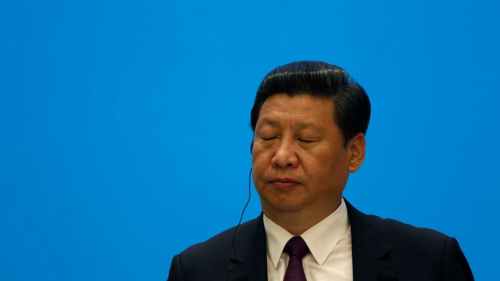Among the leadership at all levels of the government, we often see a phenomenon: they choose to remain silent in the face of the people's reflections.
Silence, as a leadership art, has different interpretations and meanings. Silencing people's complaints may involve several factors and motivations. These factors and motivations may vary across countries, cultures, political systems, historical backgrounds, and personal idiosyncrasies.
Some people think that this is indifference and ignores the demands of the people; while others think that this is a manifestation of wisdom and a wise choice on different occasions and situations. Let us explore the connotation of silence as a leadership art from different angles, and at the same time call on government leaders to find more effective communication methods in practice to serve the people and achieve social harmony.
First, maintaining the image of the government: Government leaders may worry that responding publicly to complaints will expose government deficiencies or mistakes and damage the government's image and reputation. They may wish to avoid acknowledging the existence of the problem in public, and so choose to remain silent or ignore it.
Second, political pressure: Government leaders may be under political pressure, unwilling to publicly respond or resolve some sensitive issues. Responding to complaints may involve political risk for themselves, and they may worry that taking action will cause greater controversy or negatively affect the government.
Third, bureaucracy: In some government organizations, bureaucracy can lead to slow decision-making, inefficiency, and blurred responsibilities. Government leaders may be less motivated to deal with complaints because they fear it will increase their workload or may have a negative impact on themselves.
Fourth, concentration of power: In some systems, power can be highly concentrated in the hands of a small number of people, leading to opaque decision-making and centralized handling of complaints. Government leaders may feel that responding to individual complaints does not have a significant impact on the overall situation and choose to ignore or ignore them.
Fifth, trust issues: Government leaders may dismiss complaints from the public as isolated incidents, or believe that the source of the complaints is not credible or has other motives. This can lead to apathy in their response to complaints.
Sixth, resource constraints: Government leaders may believe that addressing all complaints is a onerous task, but resources are limited to address all issues simultaneously. Therefore, they may choose to focus on some important issues and ignore other complaints.
Seventh, gangs and gangs: Government leaders may think that the department or personnel being complained is their sphere of influence, and they are afraid that their foundation will be shaken. For the sake of his own nepotism, the superficial silence is actually covering up, which is completely ignoring the demands of the people.
Eighth, protect yourself wisely: government leaders may think that the department or personnel complained about are in the same system as themselves, so-called bow your head and see your head up. Therefore, they collect the silent way in exchange for their own sanity.
Government leadership must understand that silence is not the answer. Behind the silence, there should be a genuine intention to reflect and solve the problem. The government must establish more open and transparent communication channels, listen to public opinion, accept criticism, face problems bravely, and respond and improve in a timely manner. Only through proactive communication can the distance between the government and the people be narrowed, social conflicts can be properly resolved, and the goal of building a harmonious society can be realized.





